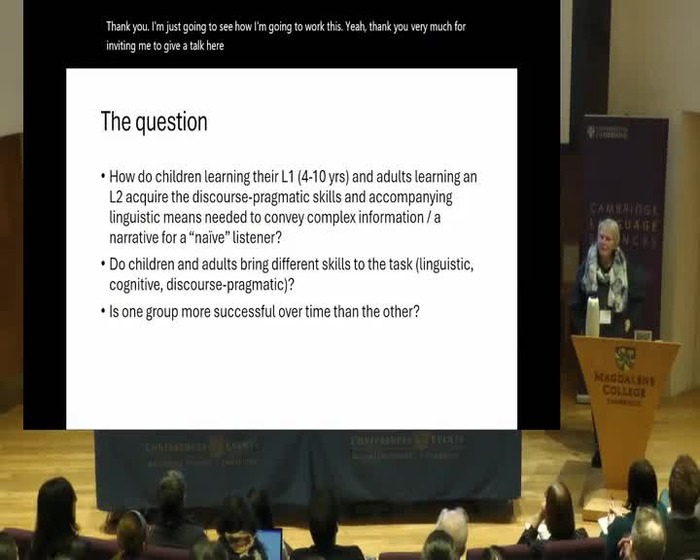Abstract
In this presentation, we will show how the developmental routes of children and adults differ, but not always in ways expected, and what explanations above and beyond mere linguistic ones, one might be able to suggest. These will contain issues regarding the focus on language learning, influence of the L1, statistical learning skills, cognitive flexibility, and others.
Language acquisition typically starts with individual words and smaller constructions, but ultimately has to lead to the freedom to construct longer texts in which each of the smaller items has its place and is appropriately used. This skill, sometimes referred to as discourse-pragmatic skill has to be acquired by both children acquiring their L1 and adults acquiring an L2.
The discourse-pragmatic organisation of texts abides by some very general universal principles, but is then expressed by language-specific means. This raises the question of L2 learners being advantaged because they will have acquired the universal principles (through their L1), but possibly being disadvantaged because they have acquired different language-specific means to express these principles.
Video




